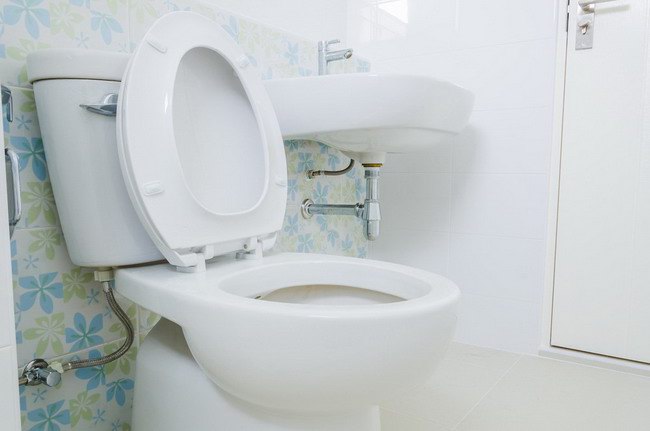Almost all places on this earth there are microbes or what we usually call germs. Germs can easily be found on all surfaces, including household items, even your own body.
In food and drinks, it is possible that there are germs. The air we breathe, the water we use daily, the plants we grow, and the pets that are considered like friends are inseparable from the presence of microbes. Luckily, most germs do not harm humans.

Even so, don't forget that some other types of germs are agents that have the potential to harm health. If most germs can be overcome by the immune system, then few of them are formidable opponents. These germs that are considered tough have the ability to mutate continuously so that they can eventually penetrate the human immune system.
Now, sadly, these harmful germs are more easily spread due to negligence in taking care of things, even at home which we consider a clean area. Not to mention the behavior that often does not heed personal hygiene.
Beware of Hidden Germs in Your Home
Items that are inhabited by germs in the house are usually something that we often use, either alone or share with other family members. We don't realize that the things we think are clean can actually be inhabited by many germs. Be aware of the following items:
Mobile phone
Activities in everyday life require us to move in open spaces. I don't know what germs stick to our hands. Then we unconsciously hold the cell phone, not to mention lend it to friends.
Handbag
When we are busy moving places when we go to school or work, starting from when we get out of the vehicle, sitting in a cafe, until arriving at the office, all kinds of germs may infest our bags. Who knows, there may already be 16 million microbes that inhabit our handbags at home.
Toilet paper container
When people take turns taking tissues or when refilling tissues into containers, various germs and bacteria can collect in them. Be careful, the tissue you use is at risk of being infected with germs, putting the user at risk for bladder infections, uterine infections, and pneumonia.
Sponge for washing cutlery
Medical research into kitchen hygiene reveals that dishwashing sponges can contain 200,000 times more germs than even a toilet seat. In other words, this sponge is a household appliance that may contain the most germs.
Behavior that Facilitates the Spread of Germs
Having a clean place to live is the first step in reducing the risk of germs spreading. But after that, the spread of germs does not just stop. Some of the behaviors below we should stop.
- Forget to take care of your hands during colds and flu
Generally, a person will cover his mouth when sneezing or coughing with his bare hands. Such behavior will make it easier for germs to spread to other people because hands are often used to come into contact with other people.
- Directly touch the food
Directly touching the food served with unclean hands and then putting it in your mouth can also be the cause of the easy spread of germs. The food left behind is likely to have also been contaminated with germs from our hands and can then be spread to other people who also eat the food.
- Preparing food in an inappropriate way
Raw food ingredients that are about to be cooked may contain many germs. These germs can stick to your hands and if your hands touch other food, they can spread. If one of these food ingredients is served without cooking, for example a salad, then the germs that have settled in the food can spread and infect those who eat it. Generally the symptoms that appear are abdominal pain, diarrhea, vomiting, and fever.
- Careless when dealing with the sick
Handling sick people can also be a powerful way to spread germs. This is very likely to happen especially if after holding a sick person then directly touch another person.
Stop being a germ-spreading agent this way
So that the spread of germs, especially those that endanger health, can be minimized, some of these actions can be taken.
- Don't wander when you're sick
Going to work or school while suffering from a contagious disease has the potential to make people who happen to be close to you sick too. Therefore, ask your boss or school for permission to rest at home while you are sick.
On the other hand, if a friend or family member is sick, try not to be too close to them. If you have to care for someone who is sick, use adequate personal protective equipment and don't forget to wash your hands to avoid infecting others.
- Prepare a tissue when you have a cold
If you have to go to work or school, always have a tissue in your pocket. Use a tissue to cover your nose or mouth when you sneeze or cough so that people around you don't catch it.
- Wash hands with soap
Washing your hands with soap after handling objects or before eating is an effective measure in preventing you from becoming a free germ-spreading agent. Washing hands with soap should also be done after using the bathroom.
- clean the house with clean tools
If the house is cleaned with unclean tools, then what happens is only the process of spreading germs to all parts of the house. To prevent this, take action on the following cleaning tools:
If you can, use a disposable washcloth. If you feel the cloth is still worth reusing, wash it first with a disinfectant solution.
Make sure the brush is cleaned after use, so wash it regularly with a mixture of warm water and liquid detergent after use.
Wipe the floor with a clean mop. Use two buckets where one bucket as a container of water with floor cleaning detergent and the other bucket filled with water for rinsing. Clean all equipment with a disinfectant and dry after each use.
Many things can make the spread of germs uncontrollable. Sadly, most of the causes for this are our own actions. Seeing this fact, it is necessary for us to be more responsible in protecting the environment and behavior.









